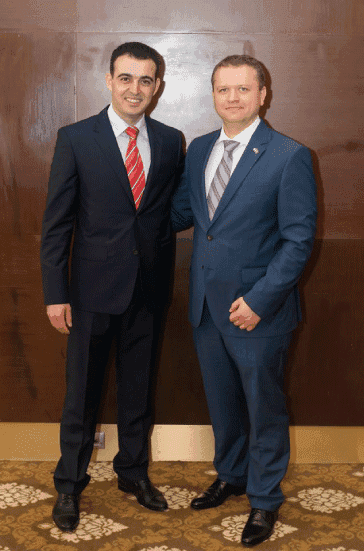The Republic of Moldova is a small Eastern European country with a market economy in development. Since its independence, Moldova has been keen to open its borders to foreign investment to vitalize its economy. To this end, Moldova has passed numerous legislative reforms to protect investments and encourage cross-border transactions.
The Moldovan tax system has been one of the key targets of reform since 1992. Moldovan tax laws require non-residents to pay taxes on profits obtained from Moldovan sources through a “permanent establishment” (PE). The PE concept is regulated by the Moldovan Tax Code and around the 48 double taxation treaties to which Moldova is a party.
PE is the first test of possible taxation in Moldova for a non-Moldovan entity. Under the definition of PE in the Moldovan tax law, the existence of a PE establishes the right of the state to tax profits of a non-Moldovan enterprise. According to the Moldovan Tax Code, a non-Moldovan entity is subject to taxation only if it has a fixed place of business in the country, either through the management of assets, the acts of individual employees, or a dependent agent – an individual or company acting on behalf of the non-resident in the Republic of Moldova.
The Moldovan PE concept is a reasonable transposal of the OECD Model Convention, but in certain aspects it contradicts other business laws in Moldova.
The first source of confusion is due to the legal nature of PE as a tax fiction without legal personality, which is not separate from a non-resident whose profits are to be taxed. By this construction, foreign entities may do business in Moldova without incorporation formalities, except for a simple registration for tax purposes. This situation, however, is in contradiction with the main prohibition of entrepreneurial activity without State registration in one of the legal forms allowed by law (i.e., as an LLC, JSC, or individual entrepreneur). Failure to comply with this requirement may result in severe fines for illegal entrepreneurial activity. To avoid this interpretation, the PE definition is often used not only to determine when a non-resident will be taxed in Moldova, but also to identify the limits of where a non-resident may operate in Moldova without incorporating a business entity. Since PE represents a pure taxation concept, its legal definition contained in the law is not sufficiently self-explanatory, as no clear distinction exists between such concepts as “fixed place of business,” “representative office,” “branch,” and “subsidiary.”
This confusion is also supplemented by a special legal regime imposed on non-residents operating through a PE. Thus, even though a PE does not have a status of a separate legal entity and is not independent from a non-resident, the PE will be treated, for tax purposes only, like any other company in Moldova, and be required, among other things, to: (1) keep an accounting system in Moldova for the activity performed through the PE; (2) calculate, pay, and report income taxes from revenues obtained through the PE in Moldova; and (3) register as a VAT payer if the supplies through the PE exceed MDL 600,000 (about EUR 27,200) during any 12 consecutive months. In addition, for the purposes of foreign currency regulations, the PE will be regarded as a Moldovan resident. Thus, the PE will not be allowed to make or receive payments in Moldova in other currency than Moldovan Leu (MDL), with limited exceptions.
Another confusion related to the Moldovan PE definition is that the Moldovan legislator uses similar terminology when defining PE (in Romanian “reprezentanta permanenta”) and when defining the representative office of a legal entity (in Romanian “reprezentanta”). Moldovan practitioners frequently confuse these definitions. Indeed, there are several similarities between these two concepts, such as lack of legal personality. In addition, both are fixed places of activity where a legal entity may operate. However, in contrast to a PE, a representative office is prohibited from performing a business activity, and while a foreign entity performs through a PE its business activity in a jurisdiction other than its own, the actions of a representative office are limited to representing its founder’s interests.
The confusions listed above result in certain bureaucratic impediments. However, a thorough understanding of and timely addressing of the potential issues related to the application of PE in Moldova should build more confidence in foreign companies considering Moldova as a potential source of their business revenues.
By Carolina Parcalab, Legal Manager, ACI Partners
This Article was originally published in Issue 4.11 of the CEE Legal Matters Magazine. If you would like to receive a hard copy of the magazine, you can subscribe here.


